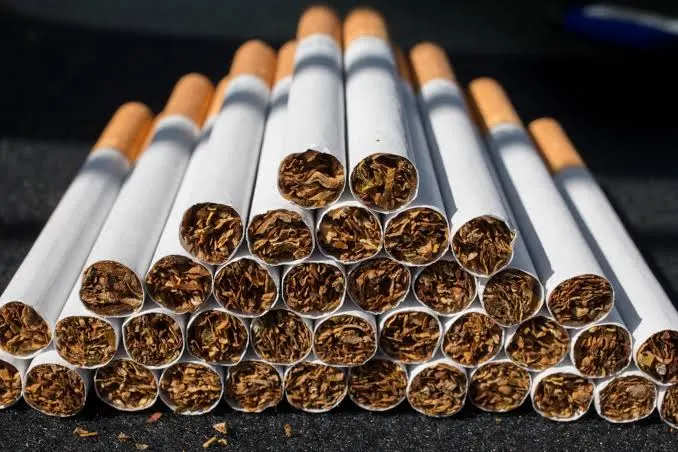BY OLUWAFUNKE ISHOLA
Africa, and indeed Nigeria is known for its generally youthful population. However, data show that these youths are endangered as the tobacco industry has targeted them for their “predatory” tobacco marketing tactics to create profits, thereby breeding a new wave of addiction.
According to the World Health Organisation (WHO), the tobacco epidemic is one of the biggest public health challenges the world has ever faced, killing more than eight million people around the world every year.
The 2024 WHO Global Report on Trends reveals that children are using e-cigarettes at rates higher than adults in many countries and globally an estimated 37 million youth aged 13 to 15 years use tobacco.
It revealed that 22 countries in the African region are on track to achieve a 30 per cent reduction in tobacco use by 2025. However, it emphasised that progress has been stifled by rising numbers of young tobacco smokers due to tobacco industry influence.
This year, once again, WHO and public health champions from across the globe have come together leveraging the World No Tobacco Day (WNTD) celebrated annually on May 31, to raise awareness about the harmful influences of the tobacco industry on youth.
The theme for World No Tobacco Day 2024 is “Protecting children from tobacco industry interference”. It emphasises the need to protect future generations and ensure that tobacco consumption continues to reduce.
WHO report titled “Hooking the next generation: how the tobacco industry captures young customers” revealed that the industry works to reach children and youth to replace customers who quit or die.
According to the report, internal tobacco industry documents, dating as far back as the 1970s, show that tobacco companies have long considered children and youth to be “replacement smokers”, “pre-smokers” and a critical market to sustaining their business and the future of their brands.
“The range of products the industry uses to appeal to youth has expanded significantly, from cigarettes, cigarillos and shisha to newer products like e-cigarettes, heated tobacco products and nicotine pouches.
“Flavoured products and additives, sleek designs and child-friendly packaging and imagery make addictive products even more appealing to youth.
“Companies rapidly launch new products that sidestep, or are not included, in current laws, and use every available means to expand their market share before regulations can catch up with them,” it said.
The health agency revealed that the industry’s tactics include positioning many nicotine products as “safer” than cigarettes, potentially distracting policy-makers and consumers from the fact that nicotine itself is addictive and harmful, particularly to children and youth.
“For example, e-cigarettes with nicotine are highly addictive and are harmful to health. While long-term health effects are not fully understood, it has been established that they generate toxic substances, some of which are known to cause cancer and some that increase the risk of heart and lung disorders.
“Use of e-cigarettes can also affect brain development, potentially leading to learning and anxiety disorders for young people,” it said.
The health agency lamented that the tobacco industry was succeeding in its efforts to create a new generation of young people who smoke, vape, suck nicotine pouches or use snuff. It noted that evidence from around the world shows an alarming uptake by children of some products, such as e-cigarettes.
“History is repeating, as the tobacco industry tries to sell the same nicotine to our children in different packaging. These industries are actively targeting schools, children and young people with new products that are essentially a candy-flavoured trap. How can they talk about harm reduction when they are marketing these dangerous, highly addictive products to children?” Dr Tedros Ghebreyesus, WHO Director-General queried.
During a virtual World No Tobacco Day webinar with Journalists, Mr Caleb Ayong, Executive Director, Vital Voices for Africa (VVA), Togo, said tobacco infringes upon children’s basic rights to health and welfare, noting that child labour in tobacco production persists in many parts of Africa.
Ayong emphasised that 14 of the 17 Sustainable Development Goals would not be achieved with tobacco industry operations, noting that it portends threats to actualisation of universal health coverage, disease prevention, and mental health promotion.















